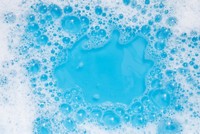Advertisement
Grab your lab coat. Let's get started
Welcome!
Welcome!
Create an account below to get 6 C&EN articles per month, receive newsletters and more - all free.
It seems this is your first time logging in online. Please enter the following information to continue.
As an ACS member you automatically get access to this site. All we need is few more details to create your reading experience.
Not you? Sign in with a different account.
Not you? Sign in with a different account.
ERROR 1
ERROR 1
ERROR 2
ERROR 2
ERROR 2
ERROR 2
ERROR 2
Password and Confirm password must match.
If you have an ACS member number, please enter it here so we can link this account to your membership. (optional)
ERROR 2
ACS values your privacy. By submitting your information, you are gaining access to C&EN and subscribing to our weekly newsletter. We use the information you provide to make your reading experience better, and we will never sell your data to third party members.
Inorganic Chemicals
DuPont Settles Titanium Dioxide Pricing Lawsuit
Price Fixing: $72 million payout resolves charge of conspiring to rig prices for pigment
by Marc S. Reisch
August 22, 2013
| A version of this story appeared in
Volume 91, Issue 34

DuPont, the world’s largest maker of titanium dioxide, has agreed to pay $72 million to settle charges that it conspired to artificially increase prices of the white pigment.
The class-action suit, filed in 2010 by a number of small paint companies that buy the pigment, alleges that DuPont coordinated price increases with other TiO2 makers between 2003 and 2013.
The suit also targeted pigment makers Kronos and Cristal, which may yet have to go to trial on the matter, and Huntsman Corp., which settled for $6.5 million last month to avoid protracted litigation. LyondellBasell Industries and Tronox were named as conspirators but were not sued because they were in bankruptcy when the suit was filed.
The TiO2 market is volatile, according to Michael D. Brown, president of consulting firm StrategyMark, who wouldn’t comment on the case itself. Prices for the global commodity tend to fluctuate depending on supply, demand, and feedstock costs, he says. They have fallen from a high of about $4,400 per metric ton in early 2012 to about $3,300 today.
For DuPont, the settlement comes just weeks after it revealed plans to sell its TiO2 business along with the rest of its performance chemicals division. “We believe that our conduct has at all times been entirely appropriate,” the firm says. The settlement, reached out of court but subject to court approval, could reassure potential buyers that the unit won’t be entangled in litigation.
According to court documents, plaintiffs alleged that DuPont joined a European trade group, the Titanium Dioxide Manufacturers Association, in 2002, allowing it and other TiO2 makers to share global production data and coordinate price increases. Overcharges during the time the cartel behavior occurred amounted to as much as $2.7 billion, plaintiffs said.
In a recent decision not to dismiss the case against Kronos and Cristal, Maryland U.S. District Court Judge Richard D. Bennett noted that the plaintiffs’ case “stands on circumstantial evidence alone—there is no ‘smoking gun’ that explicitly reveals an agreement to conspire.” But circumstantial evidence could lead a jury to “infer a conspiracy.” Indeed, a “smoking gun” is rarely found in such cases, he wrote.



Join the conversation
Contact the reporter
Submit a Letter to the Editor for publication
Engage with us on Twitter